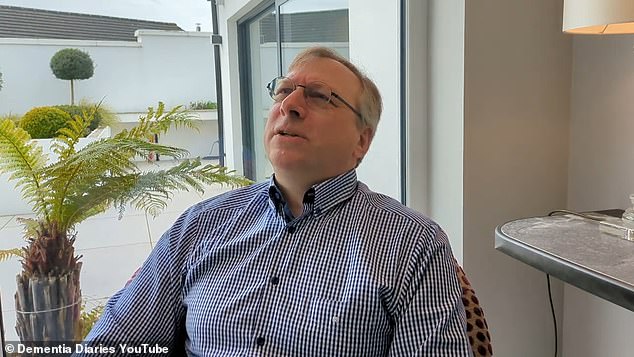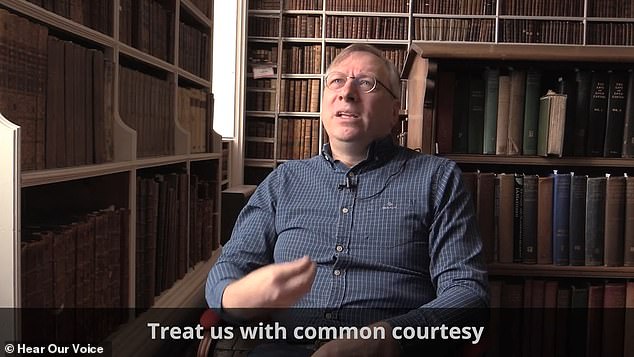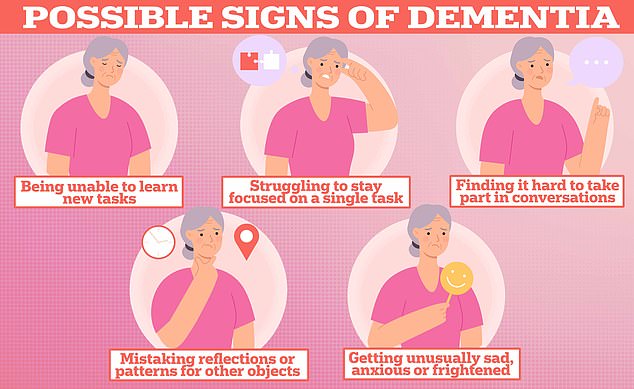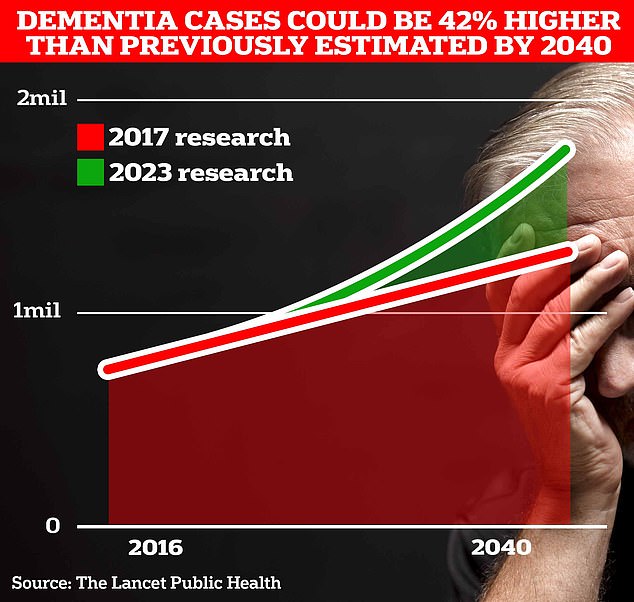A man in his 40s who was diagnosed with dementia noticed a slight change in his work-related abilities that ultimately signaled a decline in his brain health.
Peter Alexander, at the age of 56, never assumed he would be diagnosed with the memory depriving disorder when he visited a neurologist in 2018.
.
He underwent a scan on 14 January, which revealed a devastating cause of his troubles on that date: frontotemporal dementia, a form of the disease more typically diagnosed in younger individuals.
"I was informed that it's no longer safe for me to continue working because my decision-making skills have impaired, and I was found to be losing my ability to exercise self-control, making it quite challenging for me to adjust," he said.
Frontotemporal dementia is a rare form of dementia that accounts for approximately one in every 30 cases in the UK.
It receives its name from the damaged parts of the brain; the frontal and temporal lobes, which are responsible for personality and behavior, language, and the ability to plan and organize.
Individuals often observe unusual changes to their personality - such as making tactless, outlandish remarks, or becoming more disorganized than customary.

In contrast to other forms of dementia, memory problems primarily manifest in the later stages of the condition.
It often takes individuals years to experience symptoms before receiving an official diagnosis.
"I may not always be able to express it in the same manner, but I am still the same individual I was; inside, I remain Peter," he said.
Mr Alexander, in a YouTube video, also mentioned that the loss of his filter had led to his increased use of words he referred to as crudities such as swear words.
He pointed out that this is somewhat justified by: ‘People will say “Peter, you never said that before in the past,” but there's this lack of constraint, which some see as inexplicable and incredibly impolite’.
For me, it's a liberation and a newfound sense of freedom that I was previously missing.
‘They may dislike me, but don't be embarrassed, that's just who I am, in all my unfiltered form.’
He also explained that his dementia had lessened his ability to perform math calculations, but had unexpectedly granted him a more melodic voice, a change he attributed to his brain relying on different regions to form words and sentences.

‘Because, in such instances, some may consider the logical aspect of the brain, often associated with functions like reason and decision-making, to be breaking down, leading to the other side of the brain being activated and utilized in made-up functions and imagination.’
‘Rhythm, music, these things become more fluid and allow us to communicate in a more rhythmic way.’
Mr. Alexander is currently working to combat the stigma surrounding the disease and aims to inform others that dementia does not exclusively affect older individuals.
As part of this mission, Mr Alexander appeared in a documentary titled Hear Our Voice, which sheds light on individuals who contract young-onset dementia — those who receive a diagnosis at or before the age of 65.
Frontotemporal dementia occurs when brain nerve cells deteriorate due to the accumulation of several damaging types of protein.
The degeneration of nerve cells ultimately results in the brain's inability to function properly, ultimately leading to mortality.
Researchers continue investigating the cause of the toxic protein accumulation, still uncertain. It is believed that in approximately one-third of cases, the condition has a genetic origin.
The life expectancy for a person with frontotemporal dementia is typically about 8-10 years after symptoms appear, although the duration can vary significantly from one individual to another.

It cannot be cured and is a degenerative disease, meaning it will only worsen over time.
Currently, there is no cure for the condition. However, early diagnosis is considered crucial since medications and treatments can help alleviate the symptoms.
Young-onset dementia is primarily caused by frontotemporal dementia.
The most recent statistics indicate nearly 71,000 people in England are currently living with young-onset dementia, representing approximately 7.5 per cent of all dementia diagnoses.
A 69 percent increase from the 2014 figure.
Researchers are uncertain about the underlying reasons for the observed increase, but it is speculated that the surge may be linked to the same factors prompting an increase in the condition across all age groups.
This entails the aging population, a hike in obesity rates, inadequate eating habits, and the general trend towards consumming more unhealthy foods.
According to estimates, approximately one million people in the UK are affected by dementia, which is caused by a variety of factors, such as Alzheimer's disease and reduced blood circulation to the brain resulting from a stroke, referred to as vascular dementia.

Societal estimates place the total annual cost of dementia to the UK at around 42 billion pounds, with the burden primarily falling on family members.
Approximately 944,000 people in the UK are believed to be living with dementia, while the number is estimated to be around 7 million in the US.
Individuals suffering from this condition commonly experience memories and language impairments, along with difficulties in logical reasoning, which tend to gradually worsen over time.
Research conducted by Alzheimer's Research UK indicates that 74,261 people died from dementia in 2022, surpassing the 69,178 deaths recorded in the previous year, making it the leading cause of death in the country.
Read more